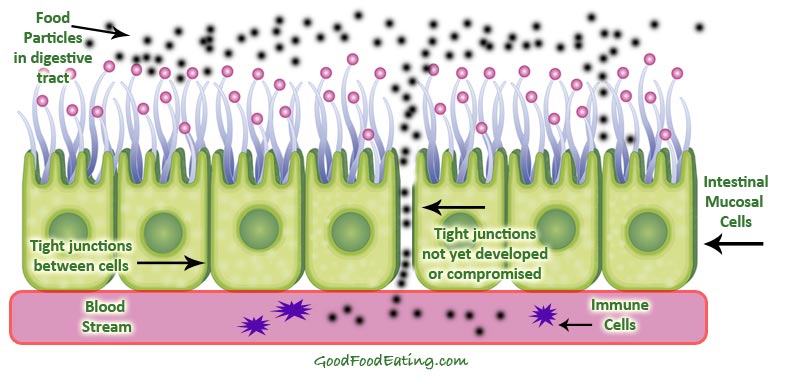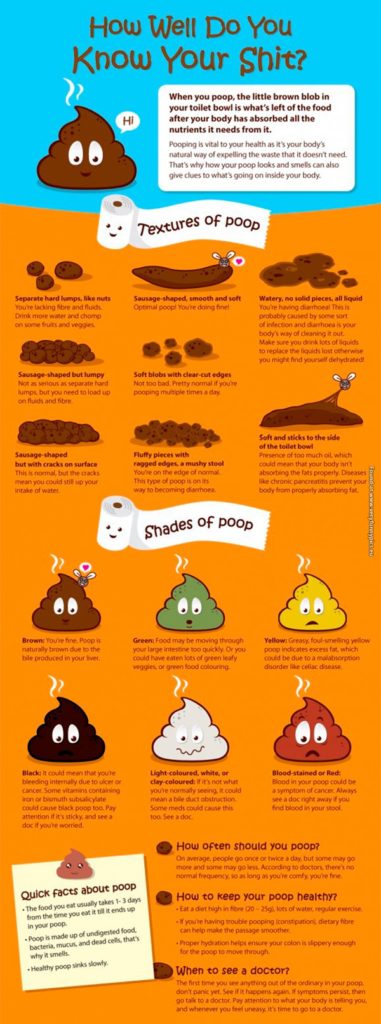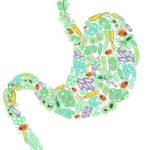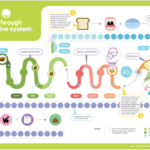Woohoo! Digestion Part 2! If you missed Part One, you will need to read it first, because it helps lay the groundwork for you to better understand what is going on here! So, before we can address why you have digestion issues (some you may suffer from and didn’t even know it!), I want you to go back and read how our digestion is supposed to work in the first place!
Let’s be real. Digestive distress is SO common and often overlooked. We feel bloated, gassy, uncomfortable after meals, or we burp + fart like nobody’s business and just think it’s normal or attribute it to our poor food choices and move along. WRONG! If something isn’t quite working right in your innards (excessive farts aren’t normal, you guys… no matter how funny they might be) , there is digestive dysfunction going on in the body. When trying to understand the proper North to South process, and what might be really going on with your digestion, we want to look to the step above in order to hopefully determine the underlying issue.

UNDERSTANDING DIGESTIVE DYSFUNCTION
REST + DIGEST: As a modern person, our culture is almost always operating in a stressed state. We are constantly eating on the go, and don’t make time to prepare + enjoy a meal. Can you think of the last time you were fully present at the dinner table or not eating on the go? No phones, no TV, no rushed meal times to make appointments… If we don’t take the time to relax during our meals, we miss the first part of digestion by failing to properly signal the rest of the digestive processes.
CHEW YOUR FOOD, HONEY: If we don’t take the time to thoroughly chew each bite of our food (~ 30 seconds), our brain doesn’t get the message to signal the rest of the digestive processes, our food doesn’t get broken down enough—which makes extra work for the stomach—and the production of saliva is not properly triggered. Having proper saliva production is important because it begins the breakdown of starchy carbohydrates. If the breakdown of the starch is not completed, it will feed the bad bacteria that could possibly be residing in your small intestine.
WHY STOMACH ACID IS IMPORTANT: It is a common misconception that our society is dealing with too much stomach acid, however, this couldn’t be farther from the truth. Things like indigestion, reflux + heart-burn are actually a result of LOW stomach acid levels. In fact, it is found that approximately 90% of Americans don’t produce enough. Read this book to learn more!
If you don’t have enough stomach acid…
- Food doesn’t get fully broken down and sits in the stomach causing reflux or back flow. Because the food isn’t acidic enough for the small intestine for nutrient absorption, the undigested foods begin to degenerate…i.e. carbs ferment, fats rancidify, and proteins putrefy. Gross.
- Because you can’t properly prepare your nutrition for the small intestine to absorb the minerals it needs from your food, it leads us to have mineral deficiencies.
- Your first line of defense against bad bacteria (yeast, viruses, parasites, etc.) is gone! When the stomach is not acidic enough, it creates the perfect environment for these bad guys to thrive + wreak havoc in the rest of your digestive system.
(Read more about stomach acid in a post coming your way soon!)
LOVE YOUR LIVER! When the partially-digested, low-acidic food hits the small intestine, it fails to signal the other digestive hormones from your liver/gallbladder + pancreas to help with fat breakdown + absorption. These fats then begin to rancidify, and stress out your liver, thus leaving you fatty acid deficient. Fatty acids are key in muscle fatigue + hormone production, among many other things.
THE MORE YOU KNOW: People who have followed a low-fat, non-fat, vegan or even consuming bad fats in their diet can lead to issues with improper fat digestion.
WHAT IS LEAKY GUT: Our small intestinal lining is already permeable because that’s how we absorb our nutrition! But when larger undigested molecules reach your small intestine, and your body tries to absorb them for nutrients, the larger molecules break through your lining, causing increased permeability (aka leaky gut), which overwhelms your immune system. This often is what leads to things like gluten and dairy sensitivities…these molecules that are now in the blood stream, are seen as foreign invaders (aka bad guys), and your body begins to attack it, resulting in an amped up immune response every time you eat those foods. What should have been nourishing food is now one more assault on your immune system. See below!

POOP PROBLEMS: Your large intestine now deals with the train of a hot mess that came through your body. The valve between your small + large intestine can get jammed open causing a back-flow of bacteria, which can lead an imbalanced system. Blegh. Parasites + viruses that weren’t killed off in the stomach acid also like to harbor there. The undigested foods that are degenerating in the colon are causing an imbalance of gut flora, and without the healthy flora, butyric acid is not produced, which weakens the cells of the colon, leaving the colon subject to inflammation, diverticula, IBS and Crohn’s disease. #holyshit #punintended
WHAT DO PROBIOTICS DO? These are the good guys that help us fight off the bad guys. They run our immune system! If you’ve ever had prescription medication or antibiotics, you need to supplement with probiotics to get your gut flora back into balance. You can take a probiotic supplement, or my favorite (and inexpensive way) is to get them through probiotic foods such as cultured dairy (yogurt), raw sauerkraut + a fermented tea called kombucha. You can even make your own! Recipes coming soon.
THE MORE YOU KNOW: Probiotic foods should be slowly added in if you are not used to having them in your diet. Start with small portions, and if you experience any bloating, back off to a smaller amount until your body becomes adjusted. Also, if you have an imbalance of gut bacteria in your small intestine, kombucha can tend to feed the bad guys because it often contains sugar. If this is the case, you may experience gas + bloating. So, be mindful of this, and learn to tune into your body’s signals. If you can drink it, view it as an after meal cocktail…no more than 4-8oz per serving.
WHAT DOES YOUR POO SAY ABOUT YOU? TMI, but you gotta know your shit. We all do it (and should be 1-3x a day), and so we’ve gotta talk about it. So, get comfortable in the bathroom, y’all. What goes on in there can give you a lot of information about what might be happening in your body!
Check back for the final Part Three on Digestion and find out what simple steps you can take to improve your digestive dysfunction!
Do you have any questions about digestion or specific digestive issues you’d like me to go more in depth on in another post?
Comment below and let me know!






